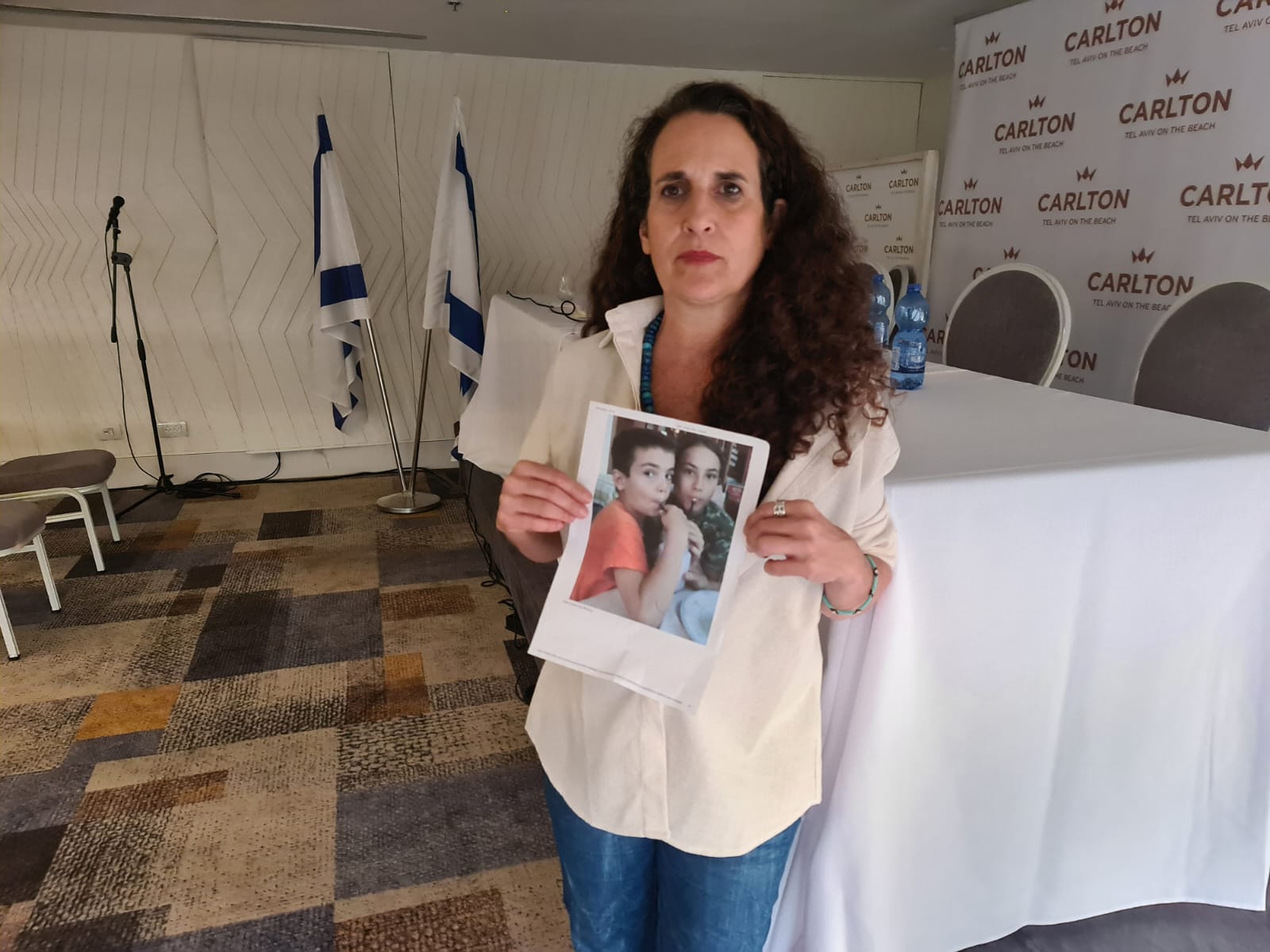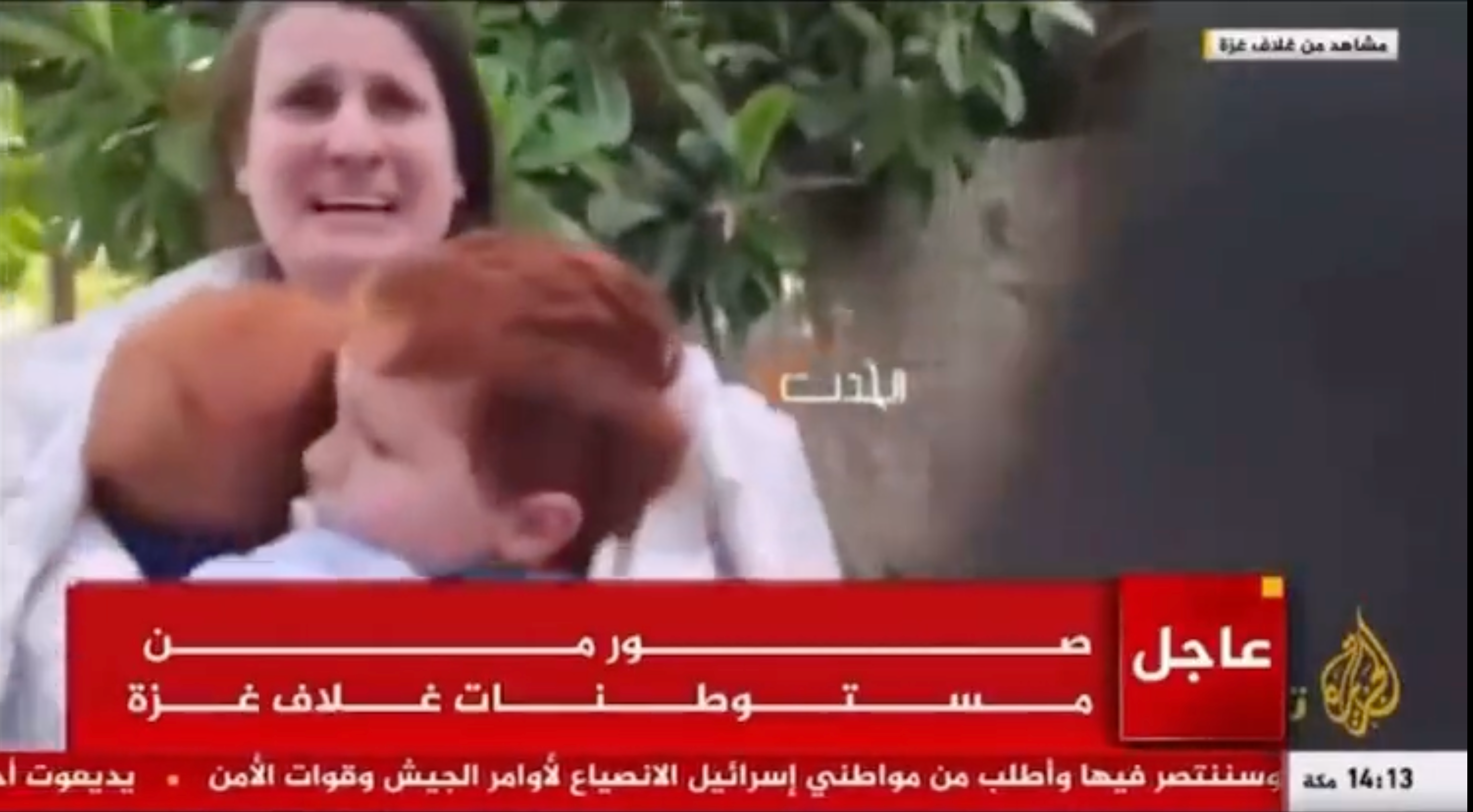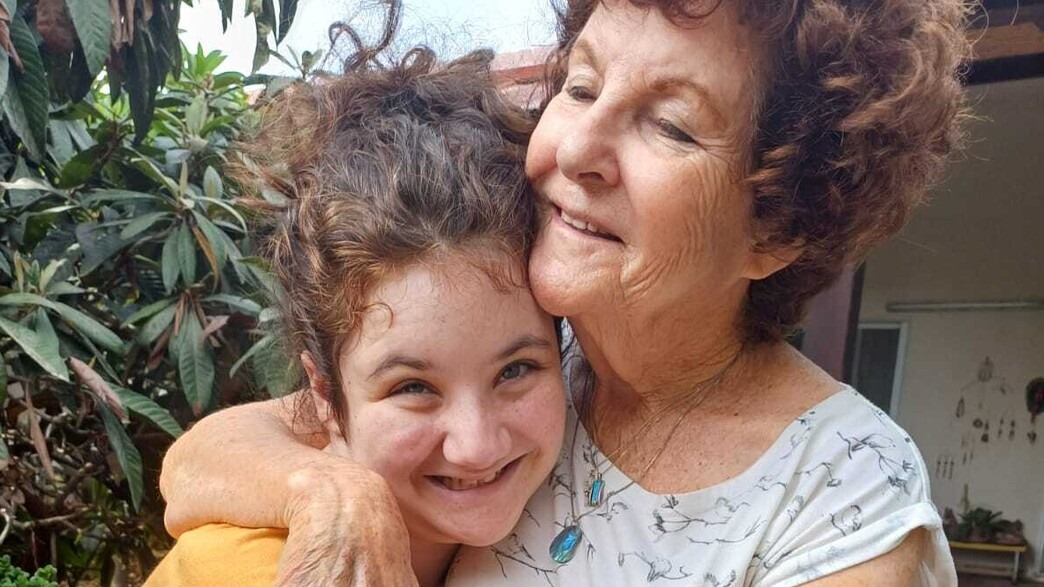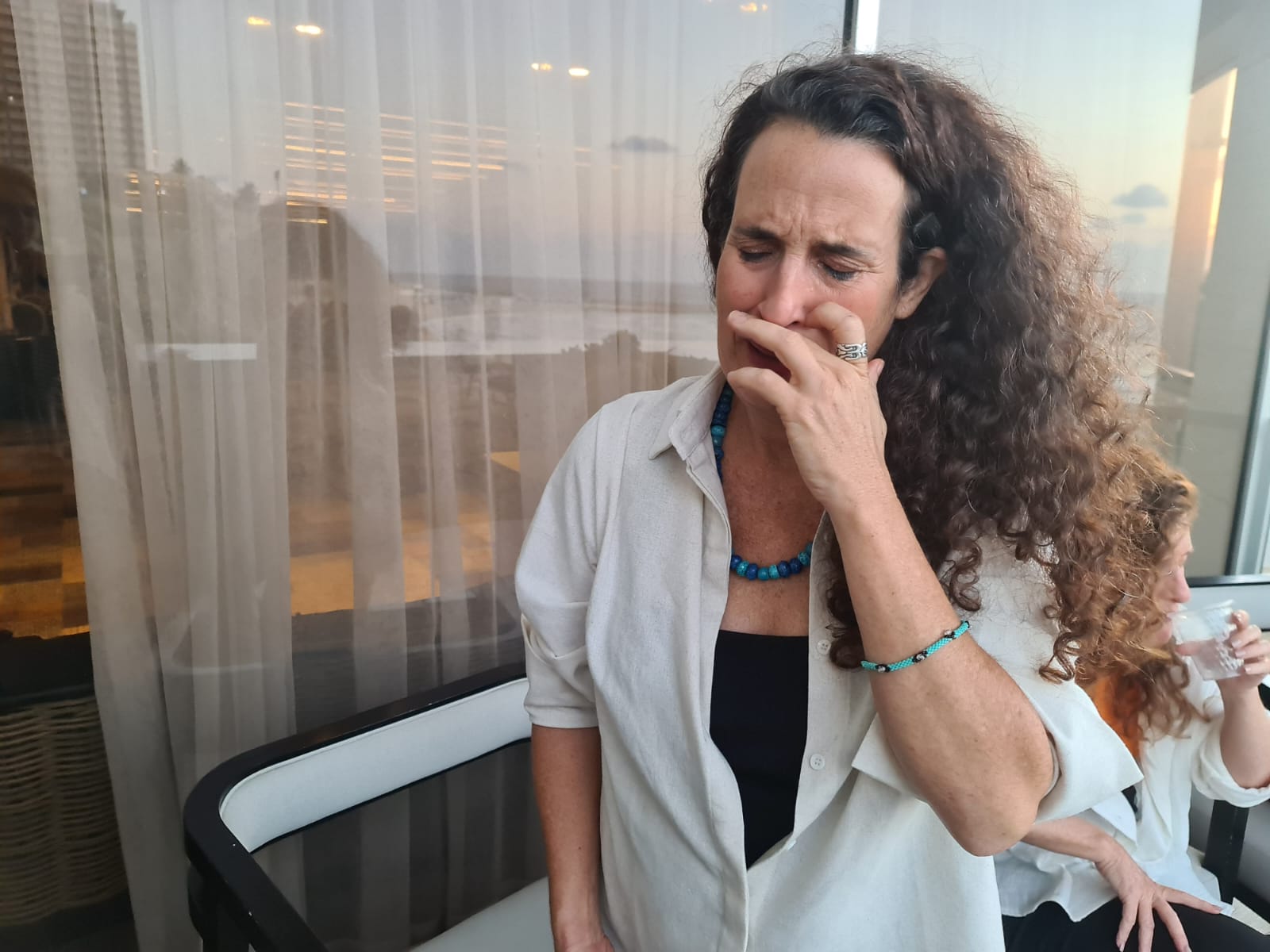TEL AVIV (JTA) — Hadas Kalderon flung a printed picture of her mother, Carmela Dan, an American-Israeli who was reported kidnapped by Hamas on Oct. 7, to the floor.
“She’s dead. There’s nothing I can do about her anymore. I don’t even have a minute to think about mourning,” Kalderon told the Jewish Telegraphic Agency.
“But I can save the living. I can fight to save my children.”
Kalderon’s comments came as she participated in a press conference in Tel Aviv organized as part of a sweeping, sustained effort to draw local and global attention to the more than 200 Israeli captives now held in Gaza. Thursday’s event focused on just one subset of the group: the children.
There had been no estimate of how many of the captives are children until Thursday, when Israel said the number was at least 30. Videos shared by Hamas and pictures shared by their relatives have seared the faces of several into the international consciousness.
One of the children to gain widespread attention is Calderon’s 12-year-old niece, Noya Dan, who had slept over at Carmela’s home on Kibbutz Nir Oz the night of the attack. A quarter of the kibbutz’s population is now dead or missing; her mother and sister are among the survivors.
A picture of Noya dressed as Harry Potter circulated widely on social media, even drawing amplification from the character’s creator, J.K. Rowling, after Israel asked the British author to publicize her disappearance.
On Wednesday, Hadas Kalderon celebrated her mother’s 80th birthday in her absence. She said the gathering was full of hope that Karmela would be soon released. The following day at 10 p.m. she received a phone call from the army telling her that Carmela’s and Noya’s bodies had been identified. She said she still does not know the circumstances surrounding their death — including on what side of the border they were killed. She wonders whether Noya’s autism might have played a role.
“We don’t know what happened. Maybe [Carmela] couldn’t walk with her anymore so they killed her,” Kalderon said. “Which makes us so worried for the others.”
The others include Kalderon’s own children, 16-year-old daughter Sahar and 12-year-old son Erez, who were also on the kibbutz that night with their father.
“I can hear every night my son screaming to me, mom, save me,” she said, crying.

Hadas Kalderon holds up a picture of her children, Sahar and Erez, at a press conference about child hostages of Hamas in Tel Aviv, Oct. 19, 2023. (Deborah Danan)
She said the army told her that they are likely in Khan Younis, a southern Gazan city just six miles from Nir Oz. With the Israeli army preparing for what it says could be an extended ground invasion of Gaza, she knows her family is at risk.
“Stop immediately any military action” until the hostages are released, she said. “And then make the war. You can’t make a war at the expense of children and babies.”
Some reports have emerged of back-channel negotiations around freeing the hostages, but Kalderon joins other families of captives in believing that Israel should be doing more. She assailed Israeli Prime Minister Benjamin Netanyahu for saying that “bringing back the hostages was part of the goals” of Operation Iron Sword, the army’s name for the war.
“It’s not ‘part of the goal,’” she said. “It’s the only goal.”
Yifat Zailer told JTA that hearing Kalderon become so impassioned made her believe she should be doing more to get her family’s message across. Zailer is advocating for her niece and nephew, Ariel and Kfir Bibas, and their family members. Ariel, 4, and Kfir, 10 months, were taken with their mother Shiri, Zailer’s cousin; their father Yarden; and Shiri’s parents, Yossi and Margit Silverman.

Shiri Silberman-Bibas and Kfir Bibas are visible in footage taken by Hamas after they were taken captive on Oct. 7, 2023. (X)
Shiri, Ariel and Kfir became some of the earliest faces of the hostage crisis, historic in its scope, after footage of them aired on Palestinian news and circulated online within hours of the attack. Shiri can be seen crying while carrying Kfir.
All are Argentinian citizens; the family received a picture of Yarden being driven on a Hamas motorcycle, with an obvious severe head wound, and have also advertised that Margit has advanced Parkinson’s Disease and needs medication.
“I can feel the Kalderon mother’s pain, and I think maybe I’m not fighting as much or being as militant,” Zailer said. “Because I think my heart is too broken, you know?”
She added, “I’m trying to speak about them in present tense. I’m fighting the natural [instinct to say,] they lived, they used to. But I know they will come back. They were kidnapped alive and they’ll come back alive.”
Zailer, too, said she was concerned that a military operation could put her relatives at risk, though she said she hadn’t come up with an alternative.
“I’m not a politician so I don’t have the right answer,” she said. “I just want no casualties. … Someone needs to intervene, to mediate this differently. And Hamas needs to be taken down.”

Noya Dan and her grandmother, Carmela Dan, were very close. They were murdered together during Hamas’ attack on Israel. (Courtesy Hadas Kalderon)
Kalderon said she would advocate incessantly until her family is returned, calling on not just Israeli authorities to rescue them but also on the United States, which is trying to broker the situation; Qatar, which reportedly has discussed the hostages with Hamas; and more.
“I’m even asking Hamas: At this moment you have the opportunity to show that you still have humanity,” she said during the press conference.
“I want to believe that Hamas are taking care of them like they would their own children,” she said.
Exactly how much impact the press conference and the other components of the campaign, including “Kidnapped” posters that are being put up around the world, could have remains unclear. But Kalderon said she would not relent until her children were home.
“The whole world has to scream,” she said. “Scream until the skies open, ‘Bring our children home.’ They are not soldiers. They have been picked up in their pajamas from their beds.”
JTA has documented Jewish history in real-time for over a century. Keep our journalism strong by joining us in supporting independent, award-winning reporting.






